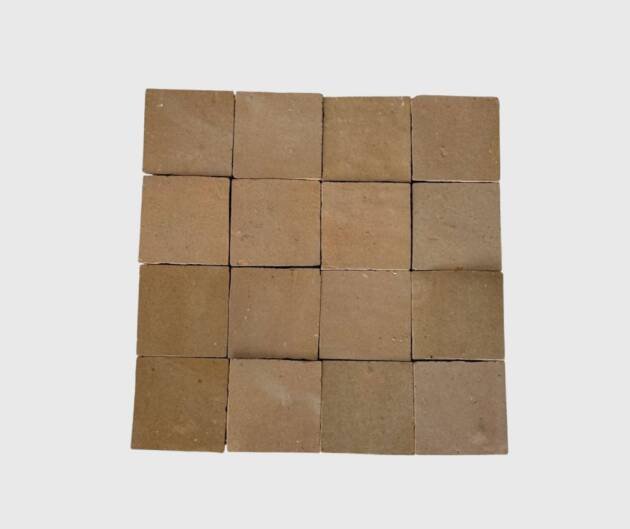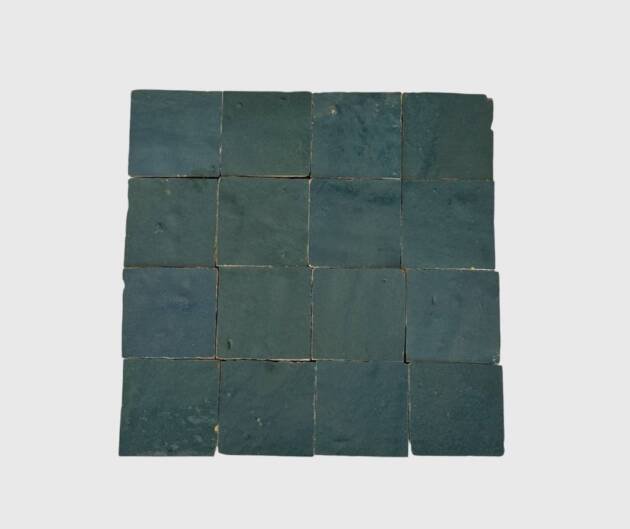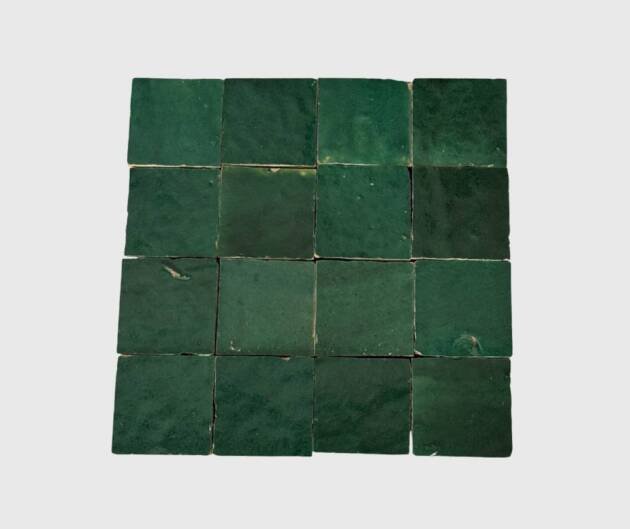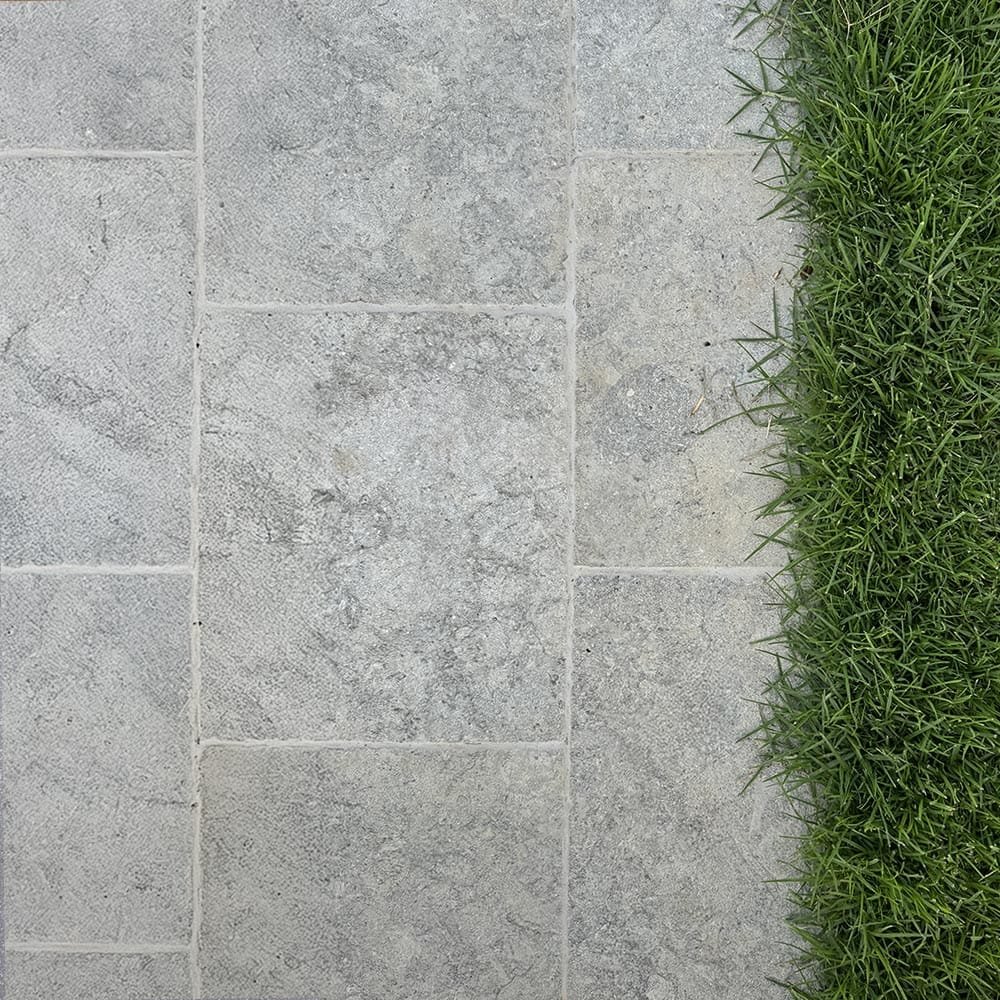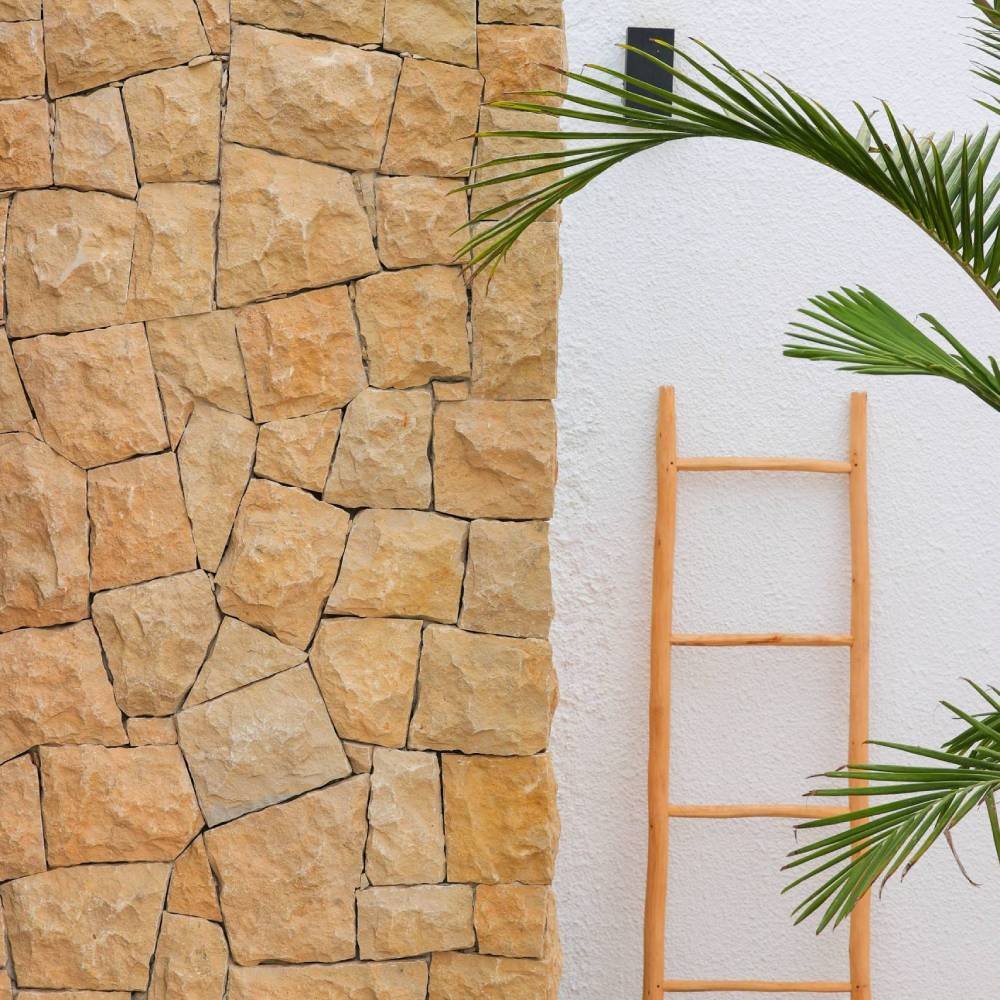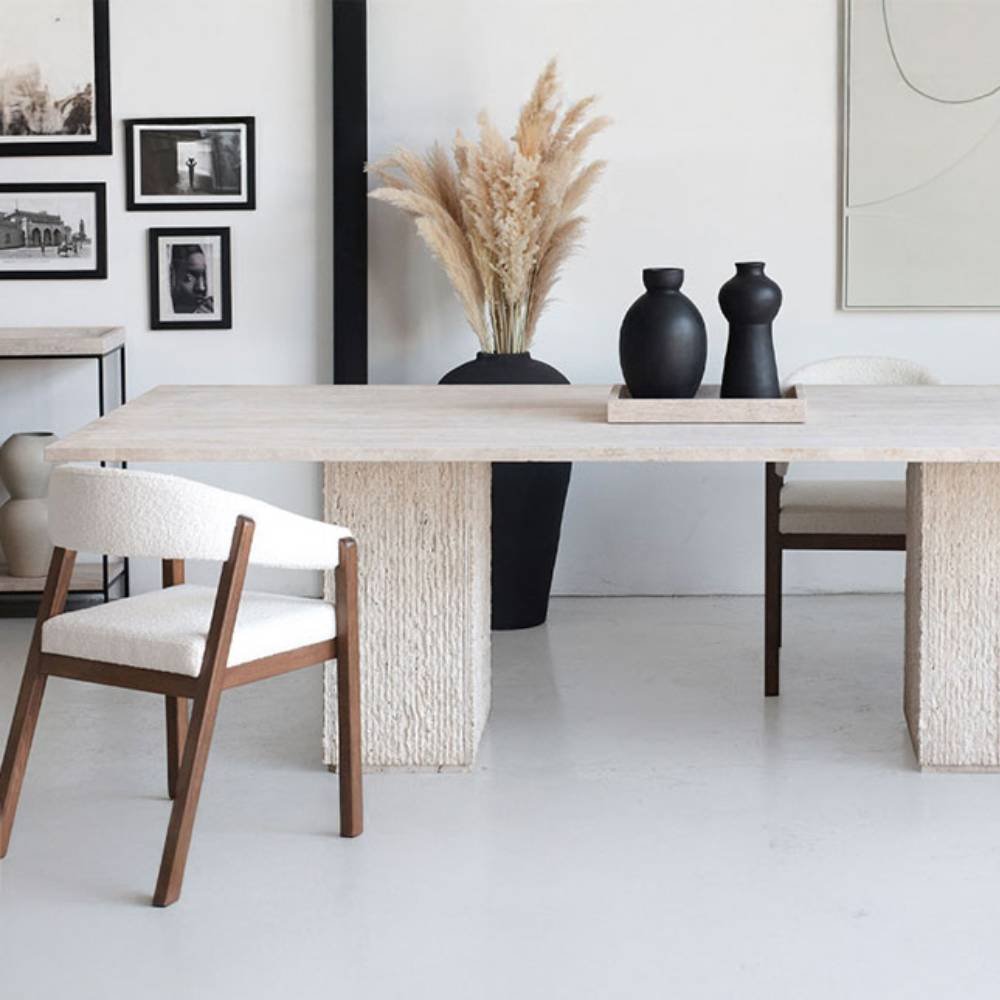Features
- Material: handcrafted clay tiles, cut and shaped individually before glazing and firing.
- Variations: color shade differences, small surface irregularities, minor chips, and texture changes are normal and expected.
- Format & Edges: rectangular handmade tiles with uneven, non-rectified edges.
- Thickness: typically 15–20 mm, with natural variation between pieces.
- Dimensional Tolerance: size differences of ±2–4 mm are common; installation requires adjusted joints.
- Use: suitable for interior walls, showers, kitchen areas, fireplaces, and light residential flooring.
- Surface Texture: denser and thicker than Zellige, giving better resistance to pressure and impact.
- Outdoor Use: not recommended in freeze-thaw climates without professional evaluation.
- Heat & Moisture: resistant to normal household heat and humidity when installed on a compliant substrate.
- Artisanal Character: each Bejmat tile has unique shades, textures, and imperfections inherent to Moroccan craftsmanship.

